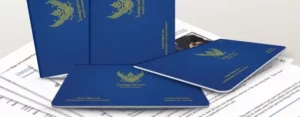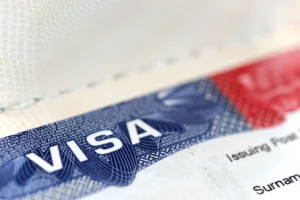Escrow accounts in Thailand serve as an intermediary financial mechanism designed to protect contracting parties by ensuring that payment and asset transfer conditions are met before funds are disbursed. Common in property transactions and increasingly relevant in commercial deals, the use of escrow accounts in Thailand remains restricted by statutory requirements, banking practices, and regulatory interpretation. This article explores the legal foundation, operational conditions, and practical implications of escrow arrangements in the Thai legal system.
I. Legal Basis for Escrow Accounts in Thailand
Escrow arrangements in Thailand are governed primarily by:
-
Escrow Act B.E. 2551 (2008)
-
Ministerial Regulations issued under the Act
-
Civil and Commercial Code (Title I: Obligations), as a backdrop to contract law principles
The Escrow Act provides the primary regulatory framework for escrow contracts, defining the duties of licensed escrow agents and establishing conditions for enforceability.
Under the Act, an escrow contract is a tripartite agreement involving:
-
The buyer or obligor
-
The seller or obligee
-
A licensed escrow agent (typically a financial institution or a government-approved company)
Escrow agents must be authorized by the Ministry of Finance, and oversight is exercised through the Department of Business Development (DBD) and relevant divisions within the Bank of Thailand, depending on the nature of the transaction.
II. Purpose and Use Cases
Escrow accounts are primarily used to mitigate counterparty risk in transactions where:
-
The asset transfer and payment cannot or should not occur simultaneously
-
Trust between parties is limited
-
Due diligence is ongoing, such as verifying land title, construction permits, or regulatory licenses
-
Foreign transactions require secured fund handling prior to approvals
Common use cases in Thailand include:
-
Real Estate Transactions
-
Securing down payments before property title transfer
-
Ensuring staged payments during condominium construction
-
Complying with foreign currency remittance regulations
-
-
Joint Ventures and M&A Deals
-
Holding investment capital pending shareholder resolution or BOI approval
-
Acting as a neutral fund custodian during regulatory reviews
-
-
Litigation or Settlement Agreements
-
Holding disputed amounts pending court or arbitration decisions
-
-
Government and Infrastructure Projects
-
Ensuring milestone-linked disbursements between developers and state agencies
-
III. Structure of an Escrow Agreement
A standard escrow agreement in Thailand includes:
-
Definition of escrow conditions: Clear, objective triggers for release of funds
-
Duties of the escrow agent: Custody, monitoring, compliance, notification
-
Fee schedule: Escrow fees and administrative charges
-
Termination provisions: Resolution in case of dispute or default
-
Jurisdiction and governing law: Typically Thai law, with local dispute resolution
The agent may not release funds unilaterally; release is contingent upon either:
-
Mutual written instructions from both parties, or
-
Objective evidence that contractual conditions have been fulfilled
IV. Licensing and Regulation of Escrow Agents
Under the Escrow Act, escrow services can only be provided by:
-
Commercial banks
-
Financial institutions licensed by the Ministry of Finance
-
Companies registered and approved specifically for escrow services
To receive a license, applicants must:
-
Have minimum paid-up capital as required by law
-
Maintain segregated escrow accounts per transaction
-
Comply with anti-money laundering (AML) and know your customer (KYC) obligations
-
Submit to annual audits and random inspections by regulatory authorities
Unlicensed individuals or companies providing escrow-like services may be subject to civil and criminal liability, including imprisonment under the Act.
V. Practical Limitations in Thailand
Despite its advantages, the adoption of escrow accounts in Thailand—especially for real estate transactions—faces structural and cultural barriers.
1. Voluntary Use Only
Use of escrow accounts in real estate is not mandatory, except in select BOI-promoted or state-managed projects. Private developers may refuse to engage in escrow to retain control over payment flows.
2. Low Public Awareness
Many buyers, particularly local Thais, are unfamiliar with escrow mechanisms and rely on standard payment schedules dictated by developers or brokers.
3. Limited Bank Participation
Not all Thai commercial banks offer escrow services for small or individual transactions. Some require minimum thresholds or only offer such services for corporate clients.
4. No Government Escrow Agency
Unlike jurisdictions such as the United States where escrow is embedded in real estate systems (e.g., title companies), Thailand lacks a centralized escrow authority for real estate or consumer protection.
VI. Escrow in Foreign Transactions
Escrow accounts are especially relevant in cross-border deals involving foreign nationals or corporations. For example:
-
A foreign buyer may transfer funds from abroad into an escrow account to comply with land or condominium purchase regulations.
-
The escrow agent ensures that the Foreign Exchange Transaction Form (FETF) is properly issued, allowing ownership registration under Thai law.
-
Funds may be released only upon confirmation of title transfer or permit issuance.
In M&A transactions involving foreign investors, escrow is used to hold funds pending BOI approval, shareholder registration, or regulatory filings.
However, care must be taken to comply with the Foreign Exchange Control Act and the Anti-Money Laundering Act, particularly with respect to fund traceability and reporting obligations.
VII. Dispute Resolution and Legal Risks
In the event of a dispute between the contracting parties, the escrow agent may:
-
Retain the funds in the escrow account until a settlement agreement, court order, or arbitration award is provided
-
Request interpleader relief by submitting the funds to the court if legal uncertainty prevents disbursement
Escrow agents are required to act in strict accordance with the escrow agreement and may be held liable for breach of fiduciary duty or negligent disbursement. Agents must remain neutral and avoid involvement in substantive disputes.
VIII. Escrow in the Context of Property Law
Thai real estate transactions often involve a risk asymmetry:
-
Buyers typically transfer money before full verification of the land title or construction status
-
Developers may divert funds from one project to another due to lack of financial ring-fencing
Escrow accounts can reduce this risk by:
-
Staging disbursements in accordance with construction progress
-
Protecting buyers during due diligence, especially for off-plan developments
-
Ensuring developers use funds solely for designated purposes
However, unless the buyer insists on an escrow structure, few developers voluntarily agree to such restrictions.
IX. Future Developments and Policy Outlook
To encourage broader adoption of escrow services, the Thai government has considered:
-
Mandating escrow accounts for certain high-risk sectors (e.g., condominium presales)
-
Establishing a public escrow agency under the Ministry of Justice or Ministry of Commerce
-
Providing tax incentives for escrow usage in regulated transactions
-
Promoting e-escrow systems via the Bank of Thailand’s digital payment infrastructure
These proposals have not yet been fully realized, and the market remains largely driven by private contracting and voluntary uptake.
Conclusion
Escrow accounts in Thailand offer a legally robust mechanism for ensuring transactional fairness and minimizing risk. Grounded in statutory law and subject to licensing, escrow arrangements are particularly valuable in real estate, cross-border transactions, and high-value commercial deals.
Nonetheless, the practical uptake of escrow mechanisms is constrained by institutional inertia, limited public awareness, and the lack of centralized enforcement mechanisms. Legal and financial professionals advising on transactions in Thailand should understand when escrow is beneficial, how to structure it legally, and what regulatory obligations apply to the parties involved.




